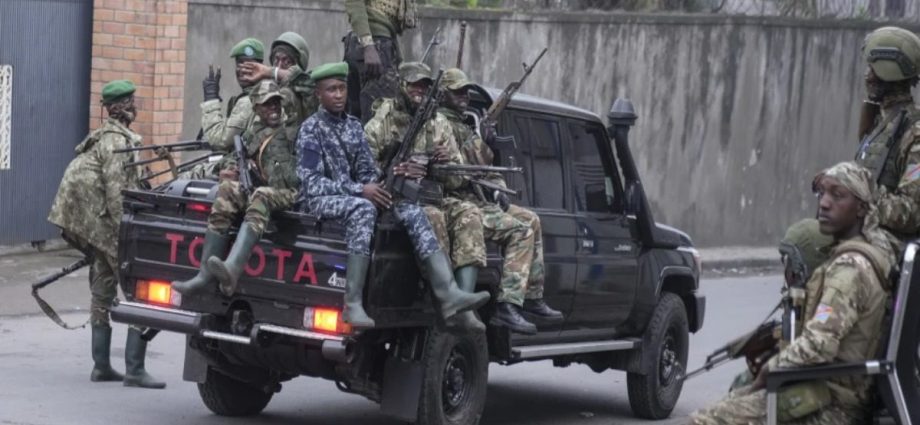Congo and M23 Rebels Sign Landmark Agreement in Qatar, Paving Way for Peace in Eastern Conflict
Historic Declaration Marks First Step Toward Ending Decades of Violence
In a significant diplomatic breakthrough, the Democratic Republic of Congo’s government and the Rwanda-backed M23 rebel group signed a Declaration of Principles in Qatar on Saturday. This agreement represents the first tangible step toward resolving one of Africa’s most protracted conflicts, which has displaced over 7 million people in the mineral-rich eastern regions.
The deal, mediated by Qatari Minister of State Mohammed bin Abdulaziz bin Saleh Al-Khulaifi, establishes a framework for future peace negotiations. Key provisions include commitments to restore state authority in rebel-held territories and confidence-building measures such as prisoner exchanges.
Contentious Issues Remain Unresolved
While the declaration marks progress, fundamental disagreements persist regarding the withdrawal of M23 fighters from occupied cities. Rebel leadership has offered conflicting interpretations of the agreement’s terms.
Bertrand Bisimwa, a senior M23 official, stated on social media platform X that the agreement focuses on “mechanisms for empowering the state” rather than withdrawal. M23 spokesman Lawrence Kanyuka explicitly told The Associated Press: “We are in Goma with the population and we are not going to get out.”
In contrast, Congolese government spokesperson Patrick Muyaya emphasized that the deal affirms the “non-negotiable withdrawal” of rebels from occupied areas to facilitate the return of national institutions.
International Context and Regional Implications
The agreement builds upon a U.S.-brokered peace accord between Congo and Rwanda signed in June. A final comprehensive agreement is expected by August 18, according to diplomatic sources.
The M23 rebellion, one of more than 100 armed groups operating in eastern Congo, has been a persistent security challenge. The United Nations describes the humanitarian situation in the region as “one of the most protracted, complex, serious humanitarian crises on Earth.”
Key Demands and Counter-Demands
The negotiations revealed starkly different priorities between the warring parties:
- M23 demands: Release of imprisoned members facing death sentences
- Government demands: Complete rebel withdrawal from captured territory
Qatar’s minister described the declaration as paving the way for “direct negotiations towards a comprehensive peace that addresses the deep-rooted causes of the conflict.”
International Reactions and Local Skepticism
The agreement has drawn cautious optimism from international stakeholders:
- Rwanda’s Foreign Affairs Ministry called it “a significant step forward”
- The U.S. State Department reaffirmed support for restoring Congolese authority
However, residents in conflict-affected areas remain skeptical. Amani Muisa, a Goma resident, voiced widespread concerns: “We cannot build peace without justice and reparation.”
Ongoing Challenges and Future Prospects
Several critical issues remain unresolved:
- Rwandan military support: UN reports indicate thousands of Rwandan troops remain in eastern Congo
- Justice mechanisms: The agreement currently lacks provisions addressing wartime atrocities
- Implementation timeline: The August 18 deadline for a final agreement leaves little time for complex negotiations
Massad Boulos, a senior adviser to former U.S. President Donald Trump who participated in the talks, emphasized the need for persistence: “The issue requires dialogue, and following up on this dialogue requires persistence.”
Looking Ahead: The Road to Sustainable Peace
Analysts warn that lasting peace will require:
- Credible mechanisms for rebel disarmament and demobilization
- Comprehensive justice and reconciliation processes
- Economic development programs for conflict-affected communities
As negotiations continue, the international community watches closely to see if this tentative agreement can transform into a sustainable peace that ends decades of suffering in eastern Congo.
For more background on this conflict, read our previous coverage: Amnesty accuses M23 rebels of war crimes in eastern Congo.


